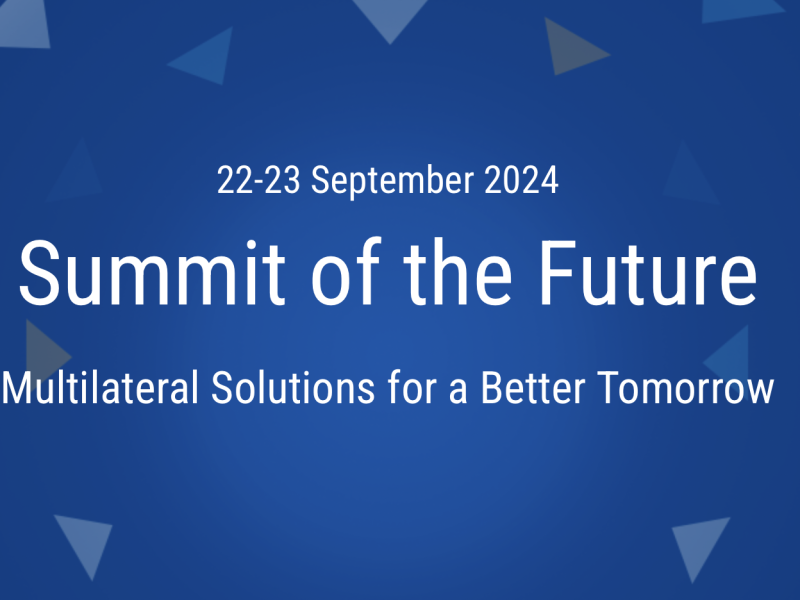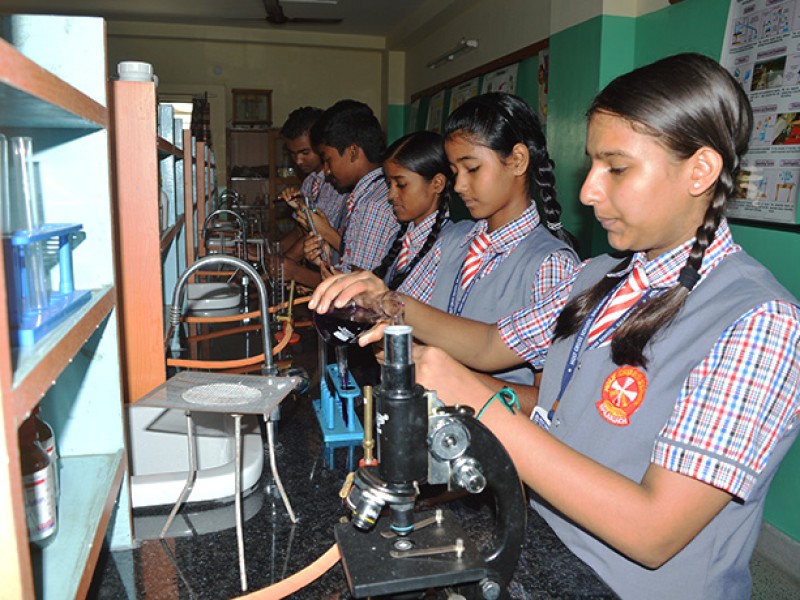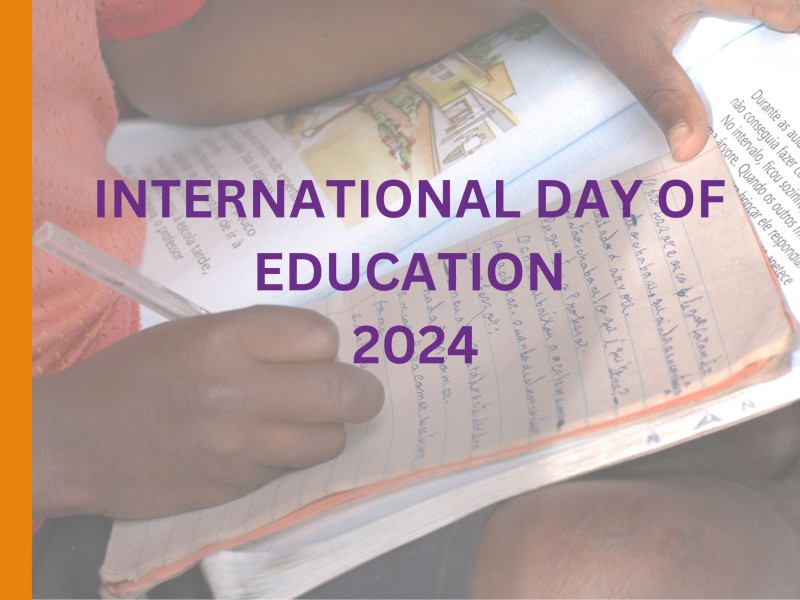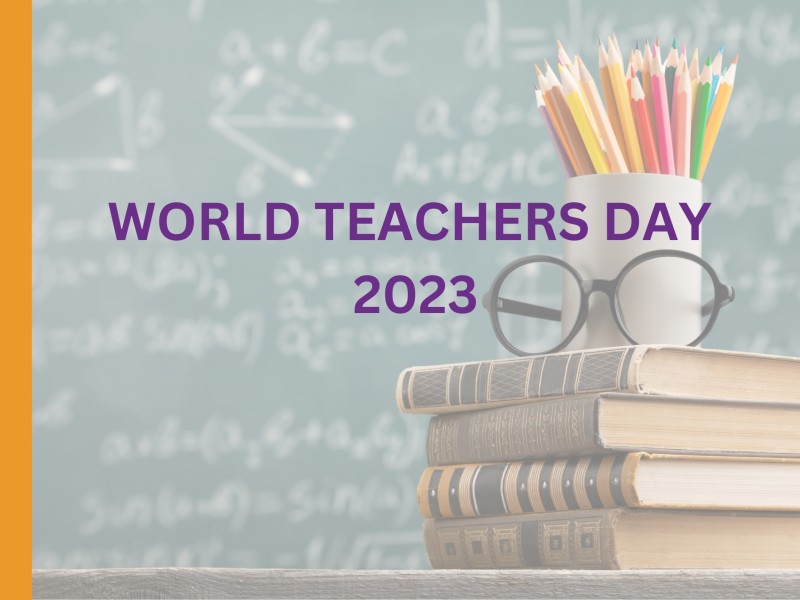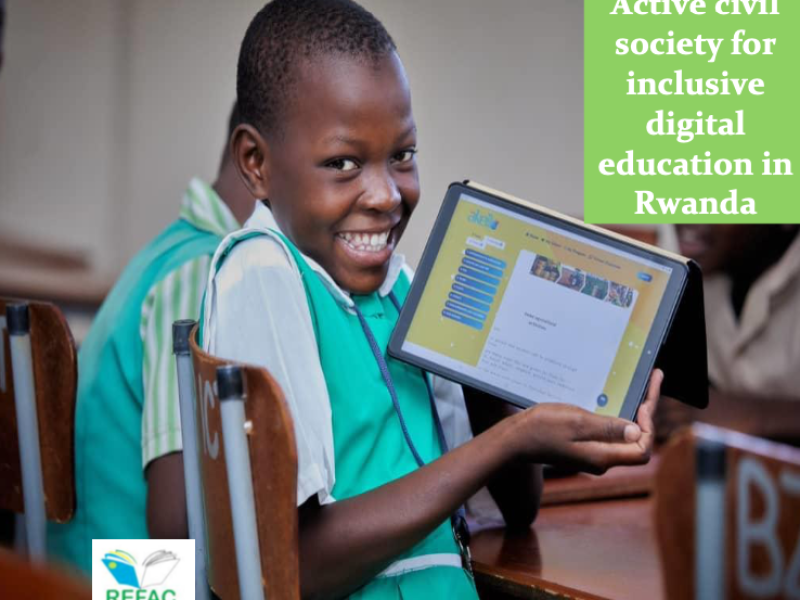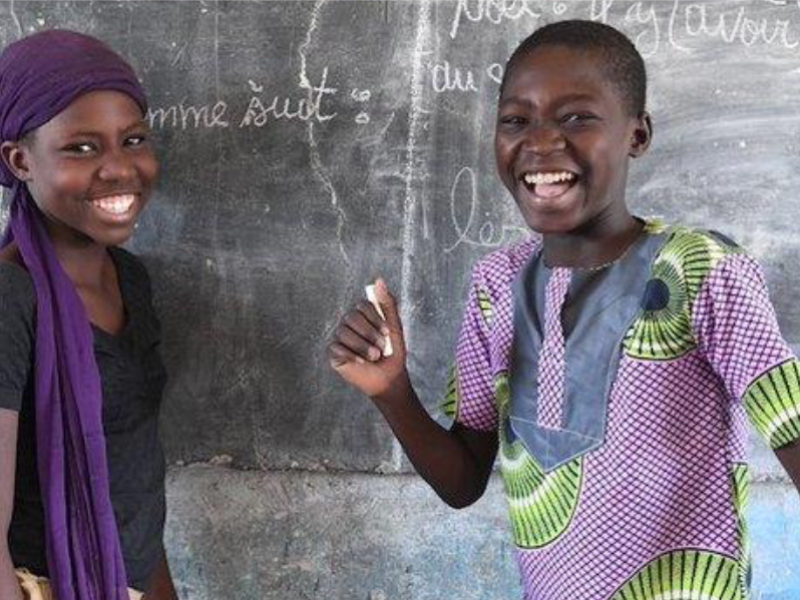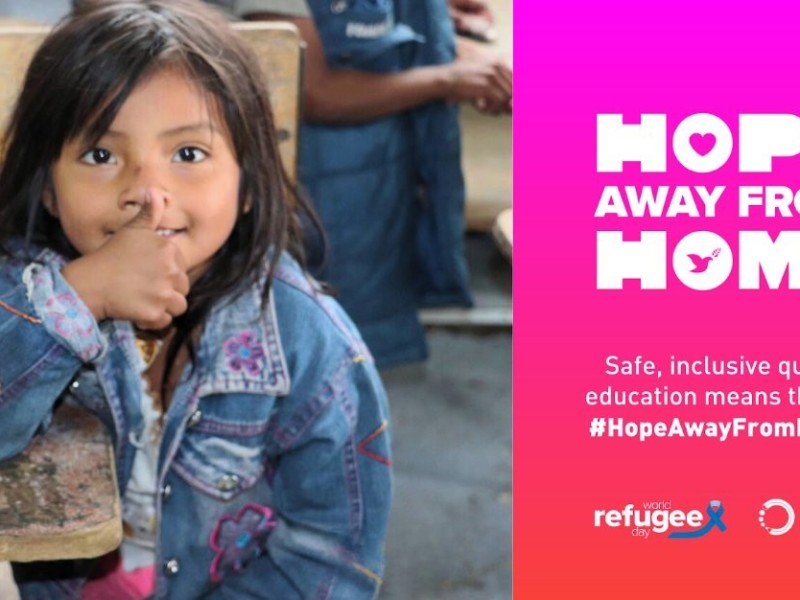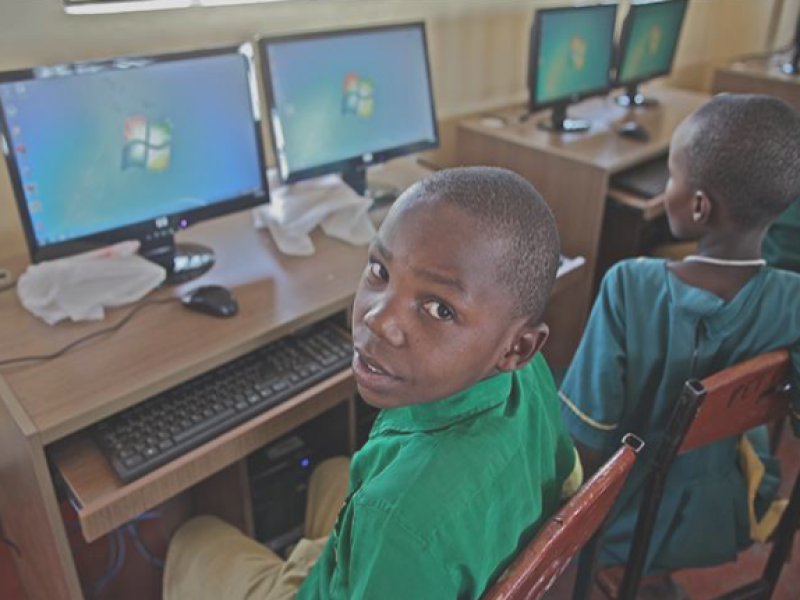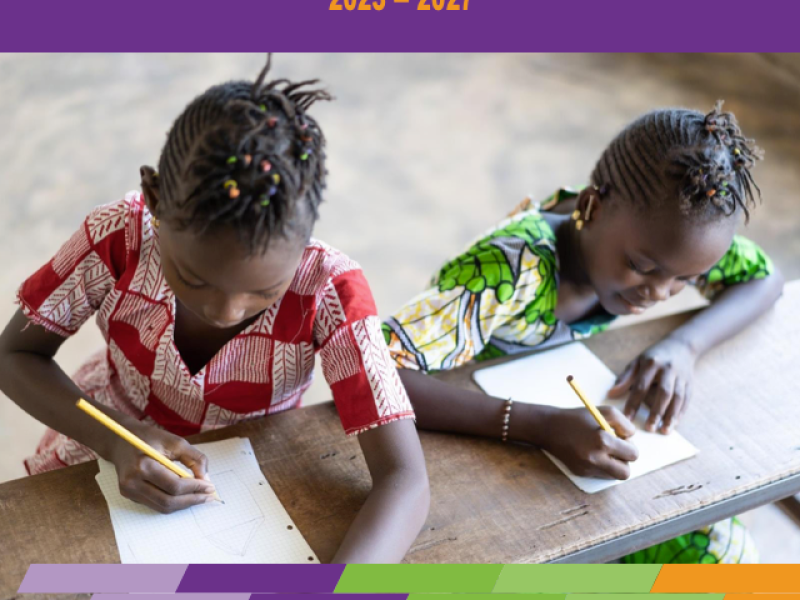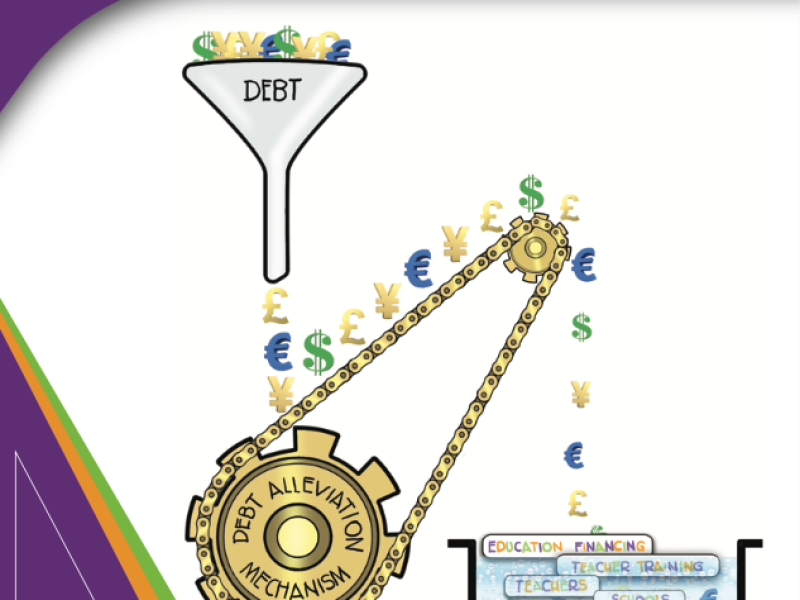Publications

11 March 2024 | Publications
Educate the Women, and You Change the World: Investing in the Education of Women
The Global Campaign for Education celebrates International Women's Day in 2024 with thetheme "Count her in: Invest in her." The theme is consistent with the UN 68th Commission on
the Status of Women (CSW 68), which will investigate pathways to greater economic inclusion
for women and girls worldwide. The theme acknowledges that, despite progress, women still
face significant barriers to equal economic participation. It calls for ensuring equal opportunities
for women and girls to build their capabilities and strengthen their capacity to learn, earn, and
lead.
03 March 2024 | Publications
Global Campaign for Education Statement regarding the organisation of Summit of the Future
The Global Campaign for Education (GCE) welcomes the Summit of the Future (SOFT), as a significant step, facilitated by the governments of Namibia and Germany, to strengthen international cooperation to build better opportunities for present and future generations.GCE has been intensively engaged to provide critical inputs to the SOFT programme and to the draft political outcomes, such as the Pact for the Future.
26 February 2024 | Publications
Intergrating Gender in Education Learning Brief
This learning brief captures lessons from the capacity-building workshop organised by the Global Campaign for Education (GCE) on Integrating Gender in Education. The workshop took place on 8 February 2024 and was carried out as part of the GCE’s global gender mainstreaming initiative. GCE designed this initiative to advance the operationalisation of the GCE Gender Strategy adopted in 2021 by supporting national education coalitions and youth organisations to integrate gender mainstreaming into their advocacy and operational processes.24 January 2024 | Publications
GCE Statement on the Occasion of the 2024 International Day of Education
“Learning for Lasting Peace”The Global Campaign for Education joins the celebrations of the International Day of Education 2024, recognizing the historical failure of states and the international community in ensuring all targets of Sustainable Development Goal 4, particularly target 7: “By 2030 ensure all learners acquire knowledge and skills needed to promote sustainable development, including among others through education for sustainable development and sustainable lifestyles, human rights, gender equality, promotion of a culture of peace and non-violence, global citizenship, and appreciation of cultural diversity and of culture’s contribution to sustainable development”.
05 October 2023 | Publications
GCE Statement on the Occasion of the 2023 World Teachers’ Day
GCE Statement on the Occasion of the 2023 World Teachers’ Day.“The teachers we need for the education we want: The global imperative to reverse teacher shortage”
03 August 2023 | Publications
Harnessing Education Technology as a Response to COVID-19
This Learning Brief was compiled by the Global Campaign for Education (GCE) to spotlight the project work, results and lessons from Rwanda Education for All Coalition (REFAC) project entitled “Active civil society for inclusive digital education in Rwanda”. The project was designed and implemented within the framework of the Resilience to COVID-19 through Digitalisation (RESICODI) German BACKUP Initiative to follow up on the implementation of the Education 2030 Agenda and SDG4 targets. The content presented in this learning brief was generated from the Monitoring and Evaluation (M&E) activities set up by the GCE Secretariat for national coalition partners to report on the progress and results of their respective country-level projects. The end-of-project report submitted by REFAC to GCE has been the primary source of the lessons and experiences shared in this Brief.03 August 2023 | Publications
Gender-Responsive Education Sector Planning (GRESP) : Community of Engagement and Practice for Turning Policies into Action
This Learning Brief was compiled by the Global Campaign for Education (GCE) following the launch of GCE’s Gender Learning Community on the 25th of May 2023. The information presented in this Learning Brief is a consolidation of gender-related learning insights, lessons learned, best practices and recommendations that were generated from the presentations made by panellists and inputs from participants.03 August 2023 | Publications
Education in Emergencies Learning Community: 2023’s World Refugee Day Celebrations
This Learning Brief was compiled by the Global Campaign for Education (GCE) following the webinar held on the 20th of June 2023 in commemoration of the World Refugee Day. The content presented in this Learning Brief is a compilation of discussions and recommendations generated from the panel presentations and input from participants. The learning brief provides insights and on-the-ground experiences on issues relating to Internally Displaced People (IDPs) and refugees in various regions and how the challenges they face deprive them of their right to education.26 July 2023 | Publications
Technology in education: Opportunities or risks? A critical debate towards the launching of the 2023 Global Monitoring Report
This Learning Brief was compiled by the Global Campaign for Education (GCE) following the webinar held on the 30th of June 2023 entitled “Technology in education: Opportunities or risks? A critical debatetowards the launching of the 2023 Global Monitoring Report”. The content presented in this Learning Brief is a compilation of risks, challenges, opportunities and recommendations that were raised by panellists and participants that are associated with the adoption of technology in the education sector in various parts of the world.
16 January 2023 | Publications
GCE Strategic Plan 2023-2027
Our global strategy is determined by our members. It is built around their most important priorities and needs. It was developed in a consultative process that involved all constituencies through surveys, Key Informant Interviews, and the collection of feedback on a set of draft strategic priorities. It integrates, wherever possible, already existing sub- strategies (youth/gender) to mainstream and lightens strategy implementation and monitoring processes.11 October 2022 | Publications
Building the Technical Capacity of Civil Society Organisations to Leverage GPE Opportunities at the National and Global Levels
This learning handbook aims to strengthen strategic opportunities for engagement in GPE amongst civil society organisations through coordination supported by GCE and to identify mechanisms that coalitions can engage at national, regional, and global levels to influence key decision-making processes. By providing coalitions with key leverage points regarding the new GPE operational model 2025 while identifying a common understanding in fostering ‘meta governance’ that will lead to an inclusive partnership amongst civil society movements.12 September 2022 | Publications



